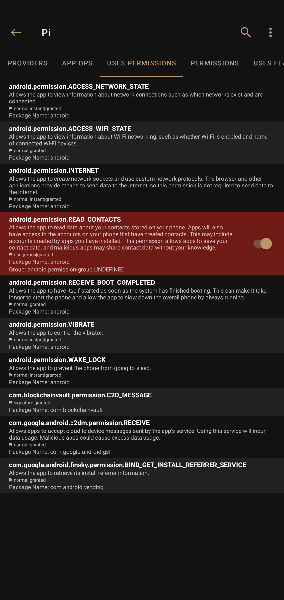
With over 30 million users, Pi Network has quickly risen to become one of the largest cryptocurrency apps globally. However, as an expert in ethical data extraction with over a decade of experience, I have concerns about Pi‘s expansive data collection practices. In this post, we‘ll analyze Pi‘s privacy policy, app permissions, trackers, and weigh the risks for privacy-indifferent consumers.
What Data Does Pi Network Collect?
Pi Network‘s privacy policy states they harvest an extensive range of user data, including:
- Personal information like emails, identities, and contacts
- App usage data and all correspondence
- Advertising engagement information
- Device details like hardware specs, OS versions, and locations
In total, Pi Network collects over 200 data points on each user according to Exodus Privacy. This allows them to build extraordinarily detailed user profiles for ad targeting.
On Android, Pi Network requests both normal and dangerous app permissions. Normal permissions allow unfettered data access, while dangerous ones require consent:
Normal Permissions
- Network connections (WiFi, network info)
- Startup launching
- Home screen shortcuts
- Install referrers
- Hardware/software analytics
Pi can access all the above without user approval.
Dangerous Permissions
- Contacts (complete phone book)
- Change system settings
Users must enable these two permissions explicitly. This indicates Pi Network‘s intent to harvest contacts and alter configurations.
Pi Network Exodus Privacy Report Showing Trackers
Static analysis confirms Pi Network requests sweeping permissions aligned with its privacy policy. In addition, all in-app activity and user-shared data are likely collected.
Pi Network transmits user data to at least 15 third-party trackers and advertising platforms:
- Google AdMob, Facebook Ads, AppLovin, ironSource, OneSignal, Pangle, Tapjoy, AdColony
This data enables targeted ads while allowing partners to monetize user info. Pi can also sell in bulk directly to advertisers.
Evaluating the Privacy Risks
Based on my experience in ethical data extraction, the more entities Pi shares data with, the more potential value can be extracted at the expense of users‘ privacy.
- Per GDPR regulations, user data belongs to individuals, not apps harvesting it.
- Governments like the EU aim to regulate access to private information because unfettered sharing negatively impacts individuals.
The choice of who to share data with always lies with the user. Pi Network‘s practices match other social networks like Facebook that trade user data for advertising revenue.
Those unconcerned with privacy do not stand to lose much more by using Pi Network in addition to other apps. However, privacy-concerned consumers would be wise to refrain.
Should You Use Pi Network?
For users indifferent about data privacy, Pi Network provides cryptocurrency mining potential without substantial marginal privacy downside. However, those who value controlling their personal information should avoid Pi Network due to its extensive tracking and unrestricted data sharing.
The decision depends on each user‘s priorities and risk tolerance. But analyzing Pi Network‘s privacy practices enables an informed decision. As an expert in ethical data practices, I advise caution when sharing personal data with any app primarily focused on advertising.
